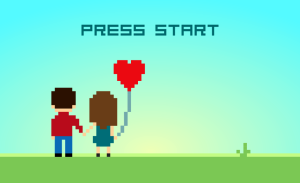A fair trade is always based on a sense of mutual consent: you want something + I want something = let’s trade. That’s fair, right? The participants can deliberately weigh the pro’s and con’s of the trade and decide – based upon this information – whether to take part in the exchange or not. That’s a choice: the choice between doing and not doing something.
How different is it for the ‘choice‘ to be born? Well, there isn’t really much of a choice there, is there? No-one has asked you: ‘Hey Peter. You want to be born?’ You don’t have this choice; you don’t have a right to decide for yourself if you want to be thrown onto this earth. No-one has asked you whether you want to experience the suffering – and the joy – that you do. No-one. You are born. Period.
There is a philosophical position called ‘antinatalism‘ that assigns a negative value to birth. This makes it different from all the ‘christian’ doctrines that praise birth to be a miraculous phenomenon; a true gift from above. There are different arguments in favor of antinatalism. One – put forward by Schopenhauer – is that live is always filled with more pain than pleasure; therefore a living person would have always been better of if he wouldn’t have been born at all. After all, Schopenhauer claims,
A quick test of the assertion that enjoyment outweighs pain in this world, or that they are at any rate balanced, would be to compare the feelings of an animal engaged in eating another with those of the animal being eaten.
Other arguments for antinatalism point to the lack of autonomy or freedom of choice involved in the ‘decision’ to be born. See it as a trade in which, no matter what your preferences might be, the deal will always take place. Peter Wessel Zapffe – a Norwegian philosopher – said about this,
In accordance with my conception of life, I have chosen not to bring children into the world. A coin is examined, and only after careful deliberation, given to a beggar, whereas a child is flung out into the cosmic brutality without hesitation.
This decision – the choice whether or not to bring children into the world – is of course a choice you have to make for yourself: do you find it okay to throw a person into this world without ever knowing – or being able to know – whether or not this person wants to be thrown into this world? It you do, you are likely to be a natalist: someone who puts a positive value on human reproduction. And if most people on this world would be natalists, there are some problems we will inevitably run into. And these problems are getting closer and closer.
I am talking of course about the ever increasing world population. In 2011 the 7th billion person was added to our world’s population. It is expected that in 2050 this number will have increased to 11 billion and – given that the fertility rate keeps constant (an average of 2.5 children per women) – the 27 (!) billion will be reached in 2100. It seems save to say that these numbers are going to pose some problems. Events like a Malthusian catastrophe – a situation in which the increase in food production can’t keep up with the increase in the world population – might happen if we don’t do something. Darwin and his survival of the fittest-doctrine seem – if we continue like this – to become ever more apparent in this world of ours.
But let’s keep the ‘logistical’ problems aside, and focus ourselves solely on the (philosophical) issues attached to (anti)natalism. All these issues culminate into one question: is it okay for anyone to throw creatures like him- or herself into the world, without having their approval? Whenever we engage in other kinds of decisions – like the trading of collector cards – we firmly believe that mutual consent is a prerequisite for ethical conduct. So why don’t we apply this same principle to child birth? Surely: we might want children; we might want to reproduce ourselves because we find children cute or we find that this is the most reasonable thing to do. But what about the children’s self-determination? Shouldn’t we pay any attention to that? Or are we just so self-centered and so egocentric that we don’t even care about throwing other people into a world without even knowing – or caring – whether this is what they would have wanted to happen? It’s obviously impossible to ask children whether they would like to be born before them being born, but why would we – based upon that knowledge – decide to do – instead of not to do – it?
What do you think?

